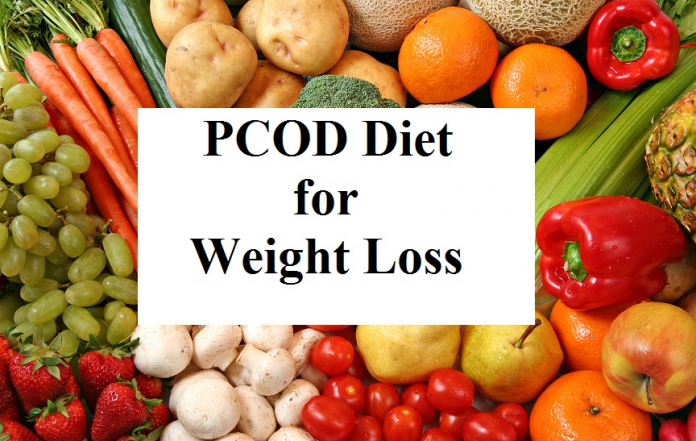What is PCOD?
PCOD is a condition caused by several small cysts in the ovaries. Urban living has been a key factor in increasing sedentary behavior and the intake of foods with low nutritional value and PCOD is observed to be higher in urban India.
Common Symptoms of PCOD
PCOD has no known cause, while doctors and specialists believe that some women are predisposed to it and it may run in families. One of the most common signs of PCOD is irregular periods. PCOD is often identified when women are trying to conceive since it leads to fertility problems. Diabetes, acne, weight gain, oily skin, migraines, cardiovascular issues, and excessive hair growth are among the other dominant symptoms of this disease. Mood swings and depression are also two of the lesser-known symptoms of PCOD.
What is The Healthy Diet for Women With PCOD
By and large, Indian cuisine comprises a healthy balance of grains, legumes, beans, fruits, and vegetables. All of this contains adequate amounts of fiber, proteins, fats, carbohydrates, vitamins, and minerals. When food and lifestyle are regulated, restricted, and practiced regularly, they can considerably aid in weight loss and are the best cure for PCOD. Women with PCOD should aim to stick to a diet plan to ensure that they get enough of all nutritional elements and maintain a healthy and balanced diet.
Here is a list of some of the best foods for Women suffering from PCOD:
- Fiber-rich Vegetables: PCOD patients should consume at least 25 grams of fiber per day in their diet. Vegetables that are rich in fiber are sure to be included in the daily diet during PCOD.
- Fresh Fruits: Mangoes, bananas, apples, berries, guava, pineapple, papaya, melon, pomegranate, and guava are all fruits that should be included in an PCOD diet plan. Fruits are high in fiber, highly nutritious, and can help fulfill sweet cravings.
A fruit-only diet or eating too much fruit at once, on the other hand, is not recommended for the PCOD diet plan. It is often recommended that these patients have only a moderate portion or a piece of fruit between meals.
- Nuts and oilseeds: Almonds, hazelnuts, flaxseeds, pine nuts, and sesame seeds are excellent sources of good fats and are recommended for PCOD treatment. A handful of nuts and seeds (no more than 20 grams) should be included in a woman’s daily PCOD Indian diet.
- Herbs and Spices: Spices and herbs can help women regulate their insulin levels and combat the symptoms of PCOD. Women who suffer from PCOD should consider adding as many antioxidant herbs and spices as they can to their diet.
- Pulses: Pulses are also low-glycemic food, making them good for controlling blood sugar levels. Split peas, green moong, yellow moong, dry beans, chana dal, lentils, soybeans, and chickpeas are excellent additions to an Indian vegetarian diet for PCOD.
What to Avoid Eating When Suffering From PCOD
Women should avoid eating:
- Starchy Vegetables: Starchy vegetables like sweet potato, yam, peas, etc., need to be avoided by women who have PCOD. These carbohydrate-rich starchy vegetables can rapidly increase a person’s blood sugar levels, causing hormonal imbalances.
- Fruit Juices, Canned fruits or Processed Fruit Concentrates: Fruit juices, canned fruit, and processed fruit concentrates should all be avoided because they are high in added sugar. Fresh or frozen fruits should be included in the Indian diet for PCOD since they possess more healthy fibers and nutrients.
- Fried foods: You may already know that fried foods such as pakoras and samosas are very high in saturated and hydrogenated fats. These unhealthy fats can enhance estrogen production and should not be included in a diet plan for a PCOD patient.
- Vegetable Oils: Any vegetable oil could be inflammatory for women with PCOD owing to its high omega-6 fatty acid ratio. Obesity, cancer, diabetes, heart disease, and many other ailments are linked to vegetable oils and on that account, many doctors recommend that healthier alternatives such as coconut oil, ghee, olive oil, and others should be incorporated in the PCOD diet plan.
- Sugary Foods: Gulab jamun, kulfi, gajar ka halwa, cakes, biscuits, and kheer are just a few of the delectable desserts liked in the Indian continent. Most of these delicacies are heavy in calories and sugar, which might worsen PCOD in women, therefore must be avoided.
Conclusion
While there is no definitive treatment for PCOD, it can be managed and controlled in several ways, including a healthy diet and regulated exercise. Find out what diet and lifestyle modifications have a good impact on your health and stay active.








